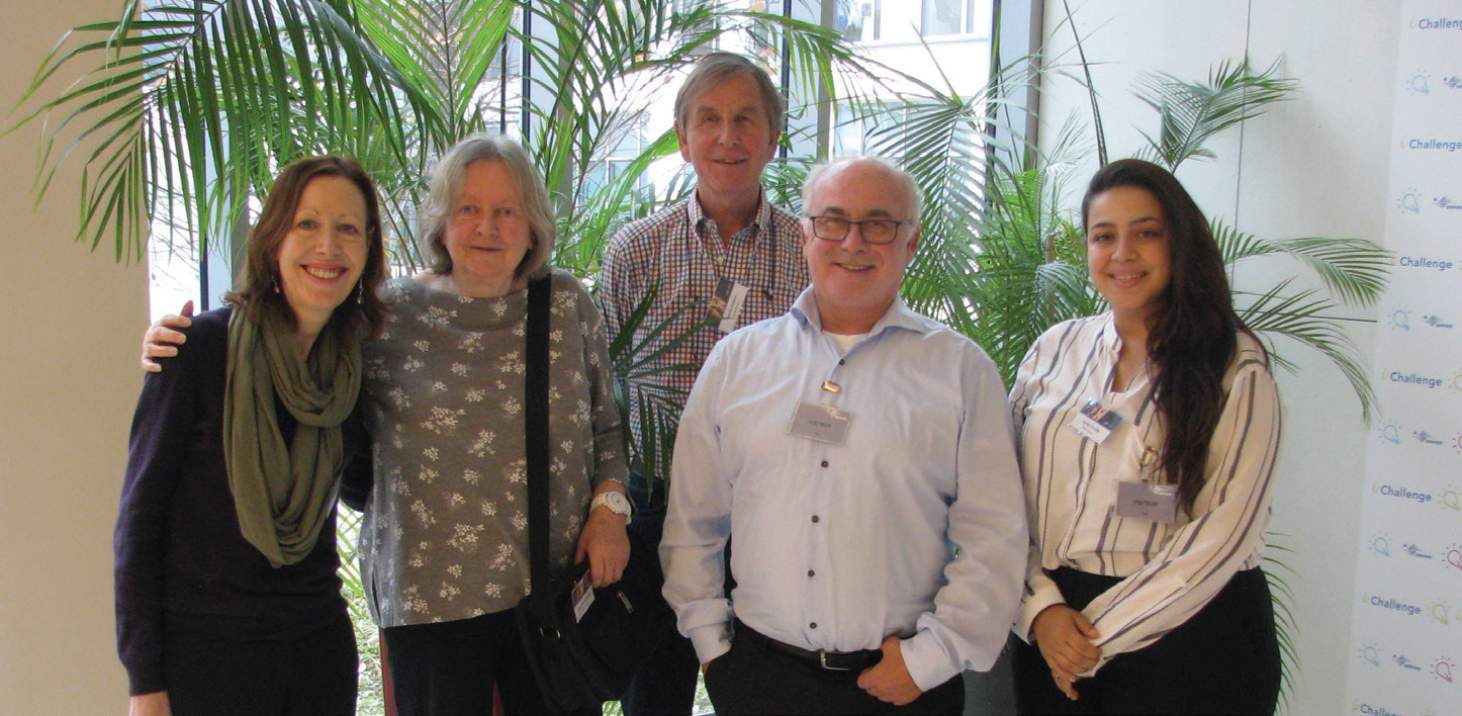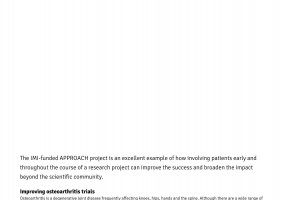Improving osteoarthritis trials
Osteoarthritis is a degenerative joint disease frequently affecting knees, hips, hands and the spine. Although there are a wide range of devices and treatments available that aid in relieving pain and improving quality of life, there are currently no drugs that can halt or reverse the onset or progression of osteoarthritis. Clearly, a better understanding of osteoarthritis and improved guidelines for new drug research are needed.
APPROACH* aims to improve future osteoarthritis trials by identifying biological markers for disease progression. It brings together European clinical centres, basic research institutes, small- and medium-sized businesses, health foundations and pharmaceutical companies. Since the project kicked off in 2015, data from more than 10,000 patients and healthy individuals have been combined in the ‘APPROACH database’. With the help of complex algorithms, patient subtypes were identified that are currently being validated in a longitudinal clinical study. Defining such subtypes will help to improve diagnosis and personalized therapy, and ultimately leads to better care for patients.
Invaluable insights from Patient Engagement
From the start, a Patient Council has been actively involved in fundamental aspects of the project’s design and implementation. The Patient Council consists of experts with direct experience of living with osteoarthritis from Germany, the Netherlands, Norway, Spain and the United Kingdom.
Over the past few years, the Patient Council has been extensively involved in developing the project plan and working out the details of the clinical study (related to the burden for study participants). It also reviewed the research protocol, the patient ‘informed consent’ forms, and the APPROACH flyer. In addition, members of the council have been instrumental in preparing the project’s newsletters that appear for study participants in Dutch, English, French, Norwegian and Spanish.
Last but not least, the Patient Council meets with all APPROACH partners and disciplines to exchange information and opinions at the project’s Annual Meeting, where the council also gives a presentation ‘from the patient’s perspective’. In the midst of all the scientific work and the deadlines, these interactions bring valuable focus and remind researchers of the target of their efforts: the patient.





